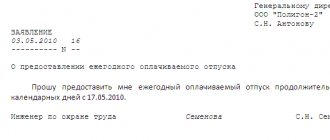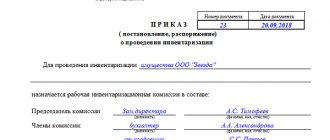Husband and wife are required by law to help each other financially. This obligation is given to them by Article 89 of the Family Code of the Russian Federation. The wife, while on maternity leave, is virtually deprived of the opportunity to earn money on her own - all her free time is devoted to caring for the baby. The husband's earnings become the main source of income during maternity leave. Unfortunately, not every spouse agrees to provide for their family during this difficult period of time. In the event of such a refusal by the husband, it is possible to recover alimony from him for his wife on maternity leave. We will examine in detail all the details of the question of how to do this.
Conditions for assigning child support for a child under three years of age
They are not particularly different from the conditions that are observed when assigning alimony for the maintenance of children of a different age.
If one parent does not live together with his child, does not take part in his upbringing, and does not spend money on his maintenance, he is obliged to pay alimony.
Whether they will be paid by mutual agreement of both parents, by court order or writ of execution is not important.
The basic rule: they must be paid monthly and in a set amount - in a fixed amount or as a share of the total income of the alimony payer.
Alimony for wife in case of disability.
A man is assigned the obligation to pay alimony to his disabled wife if she has been recognized as needy and unable to work.
Both of these statuses must be confirmed in court. Disability is recognized when a woman is assigned a disability of group 1 or 2, as a result of which she is unable to perform work duties.
In addition, in order to assign alimony, it is necessary that the former or current spouse be recognized as in need.
This only happens if the income received (pensions, benefits) is not enough to ensure a normal standard of living.
When a woman has additional income that covers her expenses, she cannot claim alimony from her ex-spouse even if she has a disability.
applications for alimony to the wife of a disabled person:
Conditions for assigning child support to the mother of a child under 3 years of age
Article 89 of the Family Code of the Russian Federation talks about the obligation of spouses to financially support each other. If one of the spouses has the opportunity, but refuses to provide this help to the needy - the second spouse, that is, for example, if the father does not pay alimony, the wife will be able to demand alimony from him in court. Important conditions must be met:
- the needy spouse must be disabled;
- this is a pregnant woman;
- this is a needy spouse raising a child under three years old;
- a spouse caring for a common disabled child of group 1 for life, or a disabled child of group 2-3, until he reaches the age of eighteen.
But the main condition is that the spouse (or former spouse) must be legal, and not civil.
Payments to wife during pregnancy.
In accordance with Article 17 of the Family Code, a marriage cannot be dissolved if the spouse is pregnant or is raising a child under 1 year old.
In this case, divorce can only take place with the consent of both spouses.
A woman expecting a child can apply for financial assistance if there is an urgent need for it.
It does not matter whether the divorce is formalized or not. To collect financial support from a spouse, it is enough only to present a certificate from a medical institution confirming her situation.
Child support for a child under three years of age and for his mother
Do you know that
If the ex-wife (mother of a common child) remarried, even if the court recognized her as needy and disabled, alimony payments are terminated. Thus, the ex-spouse is no longer required to pay to support his ex-wife.
We said above that alimony for a child under three years of age is no different from alimony for children of a different age or alimony for adopted children.
Also, the spouse who cares for such a child will be able to demand alimony. More often this is a mother who is on maternity leave. With all this, this parent must be in need, that is, due to the child’s young age, he does not have the opportunity to work and raise funds to support the child and himself.
It is no secret that it is difficult to raise a child on the allowance that our mothers on maternity leave receive. And even coupled with child support, this amount is not always enough to ensure that the child eats normally, is clothed and has shoes.
The issue of collection and amount of such alimony can be resolved by concluding a voluntary agreement with the second spouse. Or by filing a claim in court. It will also be necessary to prove to the court that the spouse caring for a child under three years of age actually needs additional support. The court will also examine the financial situation of the second spouse.
We must not forget that, according to Article 90 of the Family Code of the Russian Federation, the mother of a child under three years of age has the right to demand alimony for her own maintenance, subject to a difficult financial situation, but this obligation does not automatically arise for the father of the child. The wife will be able to collect alimony for herself after filing a corresponding demand.
Terms of payment after divorce
After a divorce, a woman can apply for alimony from the child’s father for her maintenance in the following cases (see Article 90 of the RF IC):
- Answer a few simple questions and get a selection of site materials for your case ↙
1
What's your gender
Select your gender.
Woman
Man
Your answer progress
- if she is pregnant with a common child ;
- if no more than three years since the birth of a child shared with the ex-spouse (in this case, the man will most likely be required to pay alimony for both the mother and the child);
- if the mother of a common disabled child takes care of him and is recognized as needy, in this case, payment of alimony for the maintenance of the woman can be collected until the child’s 18th birthday;
- if the ex-wife is caring for a disabled child of group 1 and is recognized as in need, she has the right to demand payment of alimony for herself on an indefinite basis, that is, throughout the child’s entire life.
Remember that in all cases, the spouse must have the necessary means to pay spousal support. If he does not have any, and he can prove this in the courtroom, then the claim for alimony for the spouse may be denied.
If the former spouse-mother of a common child enters into a new marriage, even if she is recognized as disabled and in need, the ex-husband’s alimony obligations are terminated . This means that in this case, the ex-spouse is no longer obliged to pay alimony to the mother of his children (see Part 2 of Article 120 of the RF IC).
Amount of child support for a child under three years of age
It is calculated in the same way as the amount of child support for a child of a different age. And it can either be specified in a voluntary agreement concluded by the parents, or established by the court in fixed monetary terms or in a certain proportion of the total income of the person obligated to pay child support:
- up to 25% - for one child,
- up to 33.33% - for two children,
- up to 50% - for three or more children.
When setting the amount of the monthly payment, the court must examine the financial situation of both parents. It also takes into account the calculation of child support costs provided by the plaintiff.
Termination of payments
The court has every right to exempt the defendant from mandatory financial support, no matter whether the spouses are married or divorced and have a common child. Of course, this requires strong justification.
Article 120 of the Family Code provides for events in which a disabled spouse is automatically deprived of the opportunity to receive alimony.
These include:
- death of the applicant;
- death of the spouse who paid alimony;
- the former spouse who filed the claim marries;
- the judicial authority recognizes the applicant as able to work, that is, the period of maternity leave has expired;
- During the judicial investigation, facts were revealed indicating positive changes in the material well-being of the applicant - the need for material resources is refutable.
Following the above points, payments may stop either by court decision or automatically, for example, due to the death of any of the parties to the case, or upon expiration of the payment terms.
Amount of child support for the mother of a child up to three years old
The plaintiff - in our case, a mother raising a child under three years of age, will be able to indicate in his application the amount of alimony that he would like to receive for his maintenance. With all this, he must take into account that according to the law, no more than 50 percent of the amount paid for the maintenance of the child can be recovered from the second parent.
Example: if a father pays child support in the amount of 10,000 rubles monthly, then he will be required to pay no more than 5,000 rubles for the maintenance of his mother. This is due to the fact that, according to Russian family law, child support is the responsibility of both parents equally. Therefore, the costs for it should be divided equally.
This is precisely what is connected with the method of paying alimony to the wife in hard monetary terms and nothing else.
Refusal to pay alimony
Judicial practice shows that the state does not always take the side of the plaintiff in matters of financial support. The spouse’s financial claims may not be satisfied if:
- the marriage lasted no more than 1 year;
- the wife led an immoral or immoral lifestyle (abused alcohol, drugs, cheated on her husband, etc.);
- the wife received disability due to her own fault;
- the wife deliberately distorted information about the amount of her income, presenting fictitious documents about material need;
- the spouse's financial income is minimal.
Moreover, even the fact that the wife is pregnant in these cases will not affect the refusal to pay alimony.
In the case where a husband and wife have filed for divorce, the period of three hundred days after the date of dissolution of the union is essential. If an offspring appears during this period, then paternity is automatically recognized for the ex-spouse.
This circumstance gives the right to material claims on the part of the wife. But when a wife remarries, the new husband bears the responsibility for her maintenance.
Registration of alimony and necessary documents
Alimony for a child under three and his mother can be issued:
- notarized (when an agreement on the payment of alimony is concluded between the parents);
- under a court order for the payment of alimony;
- on a claim for alimony.
The main condition for an alimony agreement between former spouses is notarization. If this condition is not met, then there is a possibility that the agreement will be invalidated.
Documents required for registration of alimony for wife and child:
1) passport of the plaintiff,
2) the child’s birth certificate or
3) a certificate from the antenatal clinic indicating the duration of pregnancy,
4) certificate of marriage (if the marriage has not yet been dissolved),
5) certificate of divorce (if the marriage has already been dissolved) (read more in our article about filing a divorce if you have children),
6) certificate from the defendant’s place of residence,
7) information about the lack of income or low income of the child’s mother (certificate from the place of work about being on maternity leave, a certificate from social security about the amount of benefits, etc.).
All these documents, as well as their copies, are provided to a notary (when there is a voluntary agreement between the spouses), a magistrate in order to obtain a court order, or are attached to the statement of claim for the recovery of alimony.
Alimony for pregnant women
Pregnant women are included in the group of separately mentioned persons who have the right to receive alimony for their maintenance from their spouse. An important factor in this regard is the fact of official registration of marriage relations . If the couple’s relationship has not been registered with the registry office, the pregnant woman has no right to payments from the man.
A woman can receive alimony for her maintenance regardless of whether the marriage continues or has been dissolved. The main factor in this case will be the fact that the wife is pregnant common child .
A necessary condition for collecting alimony for a pregnant (ex-) spouse is that the father of the child has the necessary funds to pay it.
Size
The amount of alimony is determined either by agreement between the spouses or by the court in a fixed amount of money paid monthly, based on the financial security of the spouses, their marital status and other factors worthy of attention.
Registration and collection
Alimony for a pregnant woman can be formalized in the form of an agreement between spouses, as well as in the form of a court decision when going to court. Payments under the alimony agreement must be made according to the conditions specified in the document.
If the spouse refuses to fulfill these conditions for any reason, the pregnant woman can apply to the executive authority to enforce the terms of the agreement on the payment of alimony to the mother of the unborn child . The court decision must also be executed by the spouse (including the former) without fail.
Collection procedure
If an agreement on the payment of alimony has been concluded between the parents, and it is certified by a notary, then you can immediately contact the bailiff service with it. This agreement is already binding, and alimony can be collected under it. If the agreement has not been notarized, you will need to additionally contact a notary to comply with the entire procedure.
If the plaintiff knows for sure where the defendant lives and works, he will be able to go to the magistrate’s court and write an application to obtain a court order for alimony. After considering this application, the magistrate will issue this order, in which he will determine the amount of alimony in accordance with family law. With this court order, you can already go to the bailiff service, which will collect alimony from the debtor.
If the second parent does not agree to fulfill his obligation to pay alimony for the maintenance of the child and his mother, the first parent has no choice but to draw up a statement of claim and submit it to the magistrate’s court to resolve the existing dispute. We talk about how and where to properly apply for alimony here - https://divorceinfo.ru/2349-kuda-kak-podat-zayavlenie-na-alimenty-posle-razvoda-suprugov
Also, only by filing a statement of claim in court will it be possible to resolve the issue of assigning alimony in a fixed amount. And both for the child and for his mother. But in the second case, the judge will additionally need to submit papers confirming the costs of maintaining a child under three years of age and his mother and prove the need to assign a specific amount of alimony.
After considering the claim, the judge decides to issue a writ of execution. Based on it, bailiffs will be able to begin work on collecting funds from the alimony payer.
Which court to file an application for spousal support?
The statement of claim is filed in the magistrate's court at the place of residence of the defendant. If the defendant does not live in the same city as the plaintiff, the application can be sent to the court using postal services. In some cases, if the plaintiff does not have the opportunity to be present in court in person, you can ask for a hearing to be held without his participation.
From the moment the application is submitted to the magistrate's court, the judge is given one month to consider it. This period is spent collecting the necessary information on the case and considering it. For a successful trial, it is advisable for the plaintiff to prepare all the documents necessary for the consideration of the case in advance.
Required documents and state fees
When filing a claim you must provide:
- copies of marriage or divorce certificate, child’s birth certificate, passport;
- salary certificates;
- documents confirming the need for financial support: checks, receipts, medical reports about the need for expensive treatment.
According to clause 14, part 1, art. 333.19 of the Tax Code of the Russian Federation, the state duty is 150 rubles. If the plaintiff also seeks alimony for child support, he will have to pay 300 rubles. If the claim is satisfied, the plaintiff is released from payment, and this obligation falls on the defendant. The exact size is determined after consideration of the case.
Time limits for consideration of a claim
According to Part 2 of Art. 154 of the Code of Civil Procedure of the Russian Federation, the period for consideration of cases on the collection of alimony payments in the courts is 1 month from the date of registration of the application. The defendant's systematic failure to appear at hearings without good reason is not grounds for making a negative decision on the claim.
Mother is not entitled to child support
There are several cases when a spouse who does not want to pay alimony for the maintenance of the mother of his child will be able to avoid this obligation:
- the marriage lasted a short time (less than a year, etc.),
- unworthy behavior of the spouse in marriage, which served as a reason for divorce (infidelity, drunkenness, etc.),
- the spouse became incapacitated due to her own fault (committing a crime, getting injured while drunk, etc.),
- it will be proven that the spouse is hiding the real amount of her income in order to receive alimony.
Cancellation of alimony for the maintenance of a spouse (former spouse) can be achieved at any time by proving that her financial situation has changed and improved in comparison with the income of the payer. There are also some situations in view of which the amount of alimony can be reduced - more on that on the page.
If you still have questions about how alimony is paid for the maintenance of a spouse until the child is 3 years old, then ask them in the comments
Form of claim for the recovery of alimony for the maintenance of a former spouse
When can a claim be dismissed?
Sometimes the court refuses to pay alimony to a woman, even if she is raising a minor child. This can happen if the mother:
- was married to the child’s father for less than 1 year;
- married another person;
- committed an offense;
- is characterized by inappropriate behavior (uses drugs, alcohol, etc.).
Also, alimony is not paid if the woman’s adultery has been proven. In the above cases, compensation will be transferred until the end of maternity leave.
Legislative justification
Protection of childhood and motherhood is one of the priority areas of activity in any state. That is why the expectant mother is given pre-maternity leave, recovery time and a three-year period to care for the child. The government approves various types of material support in the form of benefits and additional payments.
Art. 256 of the Labor Code guarantees a working applicant maternity leave while maintaining her position.
Monthly financial support is allocated to applicants on the basis of federal law No. 81, Art. 15, which states that during the period of maternity leave, a mother can receive a monthly allowance for caring for a child up to 3 years old. One cannot fail to note one-time payments, including regional ones, which are due to parents after the birth of their offspring.
But it is worth noting that all of the above types of material benefits are intended to support the child himself. At the same time, the mother of the baby, who provides constant care, development and education for the child, is deprived of the opportunity to earn money for herself. During the entire period of maternity leave, she has to limit herself financially if the husband of the family does not provide adequate support.
On a note!
If a spouse voluntarily refuses to support his wife financially during the period of her temporary incapacity for work, then the court will be required to pay alimony to the wife while she is on maternity leave.
Having a joint child and caring for him is a good reason for assigning temporary financial support. But the law also provides for the need to provide for the other half, regardless of disagreements, disputes and other ups and downs of life. So if a woman loses her ability to work (disability, illness, maternity leave), then she receives the right to collect financial support from the second participant in the marriage relationship.
Possible amount of compensation
In accordance with the RF IC, maintaining a child of any age is the responsibility of both parents. When divorcing a marriage, a woman should carefully consider the amount needed to provide her baby with everything he needs every month, including food, clothing, and personal hygiene items.
Based on the salary of your ex-spouse, you need to indicate a figure comparable to his income.
Expert opinion
Kuzmin Ivan Timofeevich
Legal consultant with 6 years of experience. Specializes in the field of civil law. Member of the Bar Association.
When divorcing, a man is first of all obliged to provide for the child or children left with the mother. According to Article 81 of the RF IC, the maximum share of deductions from the father’s salary should not exceed 50%.
In the case of a large family, when half of the money earned by the head of the family is allocated to the children, it is possible that the ex-wife may be denied maintenance payments when the case is considered in court, or a small amount may be awarded as a benefit.
An alternative is to conclude an agreement in which, by mutual consent of the spouses, the monthly amount of maintenance for the wife is determined for up to 3 years (Articles 99-100 of the RF IC). According to the agreement between the parents, the amount of alimony cannot be lower than that assigned during the hearing of the case in court (Article 103 of the RF IC).
Otherwise, the compiled estimate is considered by the judge taking into account the cost of living and the father’s income. The figure indicated by the mother may change either up or down during the court hearing.
Read about the procedure for paying and withholding alimony here.
When do payments stop completely?
This situation may arise if the mother no longer has a basis for receiving financial support from the child's father. The most common grounds for termination of alimony payments include:
- the child reaches 3 years of age;
- death of a child;
- removal of the mother's disability (i.e., actual recognition of her as able to work);
- a woman entering into a new marriage;
- failure to fulfill maternal responsibilities towards children.
Sometimes the monthly maintenance amount is reduced. This is possible if a man has lost part of his monthly income or is forced to transfer part of his salary not only to the mother and child, but also to other persons supported by him.
In the event of separation of parents of young children, the law provides for financial support for the party who finds themselves in a worse financial situation during the divorce.
Monthly compensation is due to both the child himself and the parent raising him until the child reaches his third birthday.











